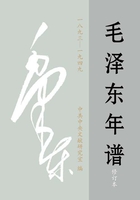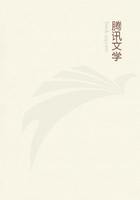AUTHOR'S INTRODUCTION
The trading upon an illustrious name can alone have given birth to the multitude of publications under the titles of historical memoirs, secret memoirs, and other rhapsodies which have appeared respecting Napoleon. On looking into them it is difficult to determine whether the impudence of the writers or the simplicity of certain readers is most astonishing. Yet these rude and ill digested compilations, filled with absurd anecdotes, fabricated speeches, fictitious crimes or virtues, and disfigured by numerous anachronisms, instead of being consigned to just contempt and speedy oblivion, have been pushed into notice by speculators, and have found zealous partisans and enthusiastic apologists.
For a time I entertained the idea of noticing, one by one, the numerous errors which have been written respecting Napoleon; but I have renounced a task which would have been too laborious to myself, and very tedious to the reader. I shall therefore only correct those which come within the plan of my work, and which are connected with those facts, to a more accurate knowledge of which than any other person can possess I may lay claim. There are men who imagine that nothing done by Napoleon will ever be forgotten; but must not the slow but inevitable influence of time be expected to operate with respect to him? The effect of that influence is, that the most important event of an epoch soon sinks, almost imperceptibly and almost disregarded, into the immense mass of historical facts. Time, in its progress, diminishes the probability as well as the interest of such an event, as it gradually wears away the most durable monuments.
I attach only a relative importance to what I am about to lay before the public. I shall give authentic documents. If all persons who have approached Napoleon, at any time and in any place, would candidly record what they saw and heard, without passion, the future historian would be rich in materials. It is my wish that he who may undertake the difficult task of writing the history of Napoleon shall find in my notes information useful to the perfection of his work. There he will at least find truth. I have not the ambition to wish that what I state should be taken as absolute authority; but I hope that it will always be consulted.
I have never before published anything respecting Napoleon. That malevolence which fastens itself upon men who have the misfortune to be somewhat separated from the crowd has, because there is always more profit in saying ill than good, attributed to me several works on Bonaparte; among others, 'Les Memoires secrets d'un Homme qui ne l'a pas quitte', par M. B- -, and 'Memoires secrets sur Napoleon Bonaparte, par M. de B-, and 'Le Precis Historique sur Napoleon'. The initial of my name has served to propagate this error. The incredible ignorance which runs through those memoirs, the absurdities and inconceivable silliness with which they abound, do not permit a man of honour and common sense to allow such wretched rhapsodies to be imputed to him. I declared in 1816, and at later periods in the French and foreign journals, that I had no hand in those publications, and I here formally repeat this declaration.
But it may be said to me, Why should we place more confidence in you than in those who have written before you?
My reply shall be plain. I enter the lists one of the last I have read all that my predecessors have published confident that all I state is true. I have no interest in deceiving, no disgrace to fear, no reward to expect. I neither wish to obscure nor embellish his glory. However great Napoleon may have been, was he not also liable to pay his tribute to the weakness of human nature? I speak of Napoleon such as I have seen him, known him, frequently admired and sometimes blamed him. I state what I saw, heard, wrote, and thought at the time, under each circumstance that occurred. I have not allowed myself to be carried away by the illusions of the imagination, nor to be influenced by friendship or hatred. I shall not insert a single reflection which did not occur to me at the very moment of the event which gave it birth. How many transactions and documents were there over which I could but lament!-how many measures, contrary to my views, to my principles, and to my character!-while the best intentions were incapable of overcoming difficulties which a most powerful and decided will rendered almost insurmountable.
I also wish the future historian to compare what I say with what others have related or may relate. But it will be necessary for him to attend to dates, circumstances, difference of situation, change of temperament, and age,-for age has much influence over men. We do not think and act at fifty as at twenty-five. By exercising this caution he will be able to discover the truth, and to establish an opinion for posterity.
The reader must not expect to find in these Memoirs an uninterrupted series of all the events which marked the great career of Napoleon; nor details of all those battles, with the recital of which so many eminent men have usefully and ably occupied themselves. I shall say little about whatever I did not see or hear, and which is not supported by official documents.
Perhaps I shall succeed in confirming truths which have been doubted, and in correcting errors which have been adopted. If I sometimes differ from the observations and statements of Napoleon at St. Helena, I am far from supposing that those who undertook to be the medium of communication between him and the public have misrepresented what he said. I am well convinced that none of the writers of St. Helena can be taxed with the slightest deception; disinterested zeal and nobleness of character are undoubted pledges of their veracity. It appears to me perfectly certain that Napoleon stated, dictated, or corrected all they have published. Their honour is unquestionable; no one can doubt it. That they wrote what he communicated must therefore be believed; but it cannot with equal confidence be credited that what he communicated was nothing but the truth. He seems often to have related as a fact what was really only an idea,-an idea, too, brought forth at St. Helena, the child of misfortune, and transported by his imagination to Europe in the time of his prosperity. His favourite phrase, which was every moment on his lips, must not be forgotten-"What will history say-what will posterity think?" This passion for leaving behind him a celebrated name is one which belongs to the constitution of the human mind; and with Napoleon its influence was excessive. In his first Italian campaign he wrote thus to General Clarke: "That ambition and the occupation of high offices were not sufficient for his satisfaction and happiness, which he had early placed in the opinion of Europe and the esteem of posterity." He often observed to me that with him the opinion of posterity was the real immortality of the soul.
It may easily be conceived that Napoleon wished to give to the documents which he knew historians would consult a favourable colour, and to direct, according to his own views, the judgment of posterity on his actions: But it is only by the impartial comparison of periods, positions, and age that a well founded decision will be given. About his fortieth year the physical constitution of Napoleon sustained considerable change; and it may be presumed that his moral qualities were affected by that change. It is particularly important not to lose sight of the premature decay of his health, which, perhaps, did not permit him always to, possess the vigour of memory otherwise consistent enough with his age. The state of our organisation often modifies our recollections, our feelings, our manner of viewing objects, and the impressions we receive. This will be taken into consideration by judicious and thinking men; and for them I write.
What M. de Las Casas states Napoleon to have said in May 1816 on the manner of writing his history corroborates the opinion I have expressed. It proves that all the facts and observations he communicated or dictated were meant to serve as materials. We learn from the Memorial that M. de Las Casas wrote daily, and that the manuscript was read over by Napoleon, who often made corrections with his own hand. The idea of a journal pleased him greatly. He fancied it would be a work of which the world could afford no other example. But there are passages in which the order of events is deranged; in others facts are misrepresented and erroneous assertions are made, I apprehend, not altogether involuntarily.
I have paid particular attention to all that has been published by the noble participators of the imperial captivity. Nothing, however, could induce me to change a word in these Memoirs, because nothing could take from me my conviction of the truth of what I personally heard and saw. It will be found that Napoleon in his private conversations often confirms what I state; but we sometimes differ, and the public must judge between us. However, I must here make one observation.
When Napoleon dictated or related to his friends in St. Helena the facts which they have reported he was out of the world,-he had played his part. Fortune, which, according to his notions, had conferred on him all his power and greatness, had recalled all her gifts before he sank into the tomb. His ruling passion would induce him to think that it was due to his glory to clear up certain facts which might prove an unfavourable escort if they accompanied him to posterity. This was his fixed idea. But is there not some ground for suspecting the fidelity of him who writes or dictates his own history? Why might he not impose on a few persons in St. Helena, when he was able to impose on France and Europe, respecting many acts which emanated from him during the long duration of his power? The life of Napoleon would be very unfaithfully written were the author to adopt as true all his bulletins and proclamations, and all the declarations he made at St. Helena. Such a history would frequently be in contradiction to facts; and such only is that which might be entitled, 'The History of Napoleon, written by Himself.
I have said thus much because it is my wish that the principles which have guided me in the composition of these Memoirs may be understood. I am aware that they will not please every reader; that is a success to which I cannot pretend. Some merit, however, may be allowed me on account of the labour I have undergone. It has neither been of a slight nor an agreeable kind. I made it a rule to read everything that has been written respecting Napoleon, and I have had to decipher many of his autograph documents, though no longer so familiar with his scrawl as formerly. I say decipher, because a real cipher might often be much more readily understood than the handwriting of Napoleon. My own notes, too, which were often very hastily made, in the hand I wrote in my youth, have sometimes also much embarrassed me.
My long and intimate connection with Bonaparte from boyhood, my close relations with him when General, Consul, and Emperor, enabled me to see and appreciate all that was projected and all that was done during that considerable and momentous period of time. I not only had the opportunity of being present at the conception and the execution of the extraordinary deeds of one of the ablest men nature ever formed, but, notwithstanding an almost unceasing application to business, I found means to employ the few moments of leisure which Bonaparte left at my disposal in making notes, collecting documents, and in recording for history facts respecting which the truth could otherwise with difficulty be ascertained; and more particularly in collecting those ideas, often profound, brilliant, and striking, but always remarkable, to which Bonaparte gave expression in the overflowing frankness of confidential intimacy.
The knowledge that I possessed much important information has exposed me to many inquiries, and wherever I have resided since my retirement from public affairs much of my time has been spent in replying to questions. The wish to be acquainted with the most minute details of the life of a man formed on an unexampled model is very natural; and the observation on my replies by those who heard them always was, "You should publish your Memoirs!"
I had certainly always in view the publication of my Memoirs; but, at the same time, I was firmly resolved not to publish them until a period should arrive in which I might tell the truth, and the whole truth. While Napoleon was in the possession of power I felt it right to resist the urgent applications made to me on this subject by some persons of the highest distinction. Truth would then have sometimes appeared flattery, and sometimes, also, it might not have been without danger. Afterwards, when the progress of events removed Bonaparte to a far distant island in the midst of the ocean, silence was imposed on me by other considerations,-by considerations of propriety and feeling.
After the death of Bonaparte, at St. Helena, reasons of a different nature retarded the execution of my plan. The tranquillity of a secluded retreat was indispensable for preparing and putting in order the abundant materials in my possession. I found it also necessary to read a great number of works, in order to rectify important errors to which the want of authentic documents had induced the authors to give credit. This much-desired retreat was found. I had the good fortune to be introduced, through a friend, to the Duchesse de Brancas, and that lady invited me to pass some time on one of her estates in Hainault. Received with the most agreeable hospitality, I have there enjoyed that tranquillity which could alone have rendered the publication of these volumes practicable.















